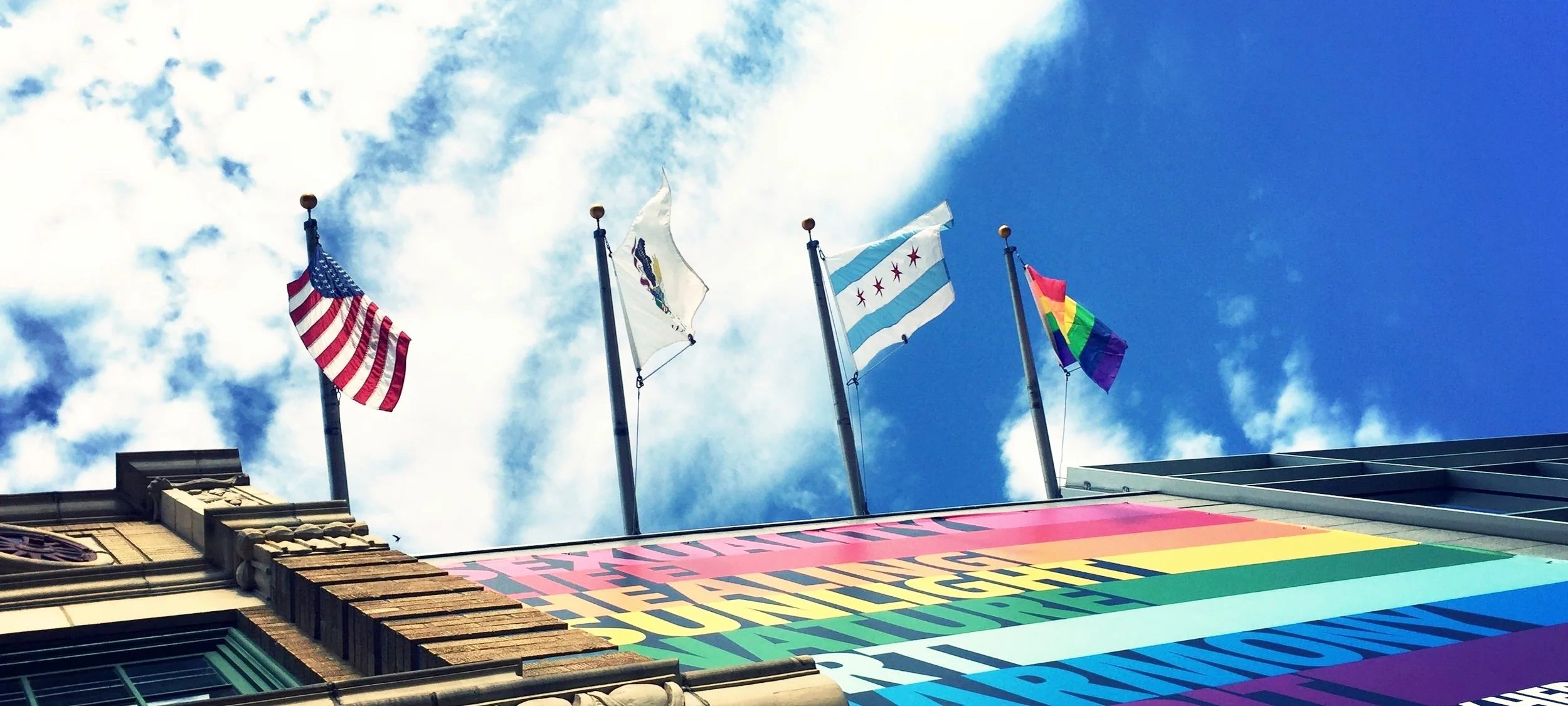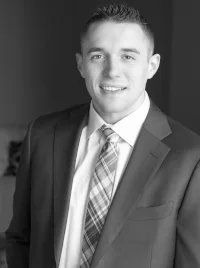Each June, we find ourselves celebrating love, diversity, and PRIDE in one’s own identity or community, in solidarity with our friends, family, and loved ones in the LGBTQ (Lesbian, Gay, Bisexual, Transgender, and Queer) community. For many, this period of time encourages us to reflect on the strides and accomplishments achieved for the LGBTQ community through unity and action. One way that our society applauds these achievements is through city-wide Pride parades, which originally began as a form of protest for the discrimination and unequal treatment of the LGBTQ community. Today, Chicago’s very own pride parade is anticipated to host more than last year’s 1,000,000 LGBTQ individuals and allies, who will celebrate LGBTQ life, culture and community across Chicago.
Wellman Psychology & Associates encourages our readers and fellow members of the community to reflect upon the milestones achieved by courageous and brave LGBTQ individuals and advocates. Here in Chicago, an initial major milestone was made in 1961, when Illinois became the first state to repeal its sodomy law, legalizing same-sex relations. This was followed by a major stride in our own field of psychology, when the American Psychiatric Association (APA) removed the diagnosis of “homosexuality” from the Diagnostic and Statistical Manual (DSM), in an effort by mental health providers to refute the belief that same-sex attraction or relationships are an “illness.” These triumphant milestones will forever be celebrated.
Fortunately, courageous and brave LGBTQ individuals and advocates across the nation continue to make strides that must too be recognized and celebrated this year in Pride festivities.
A Decade of LGBTQ Milestones
2008
- The California Supreme court ruled that limiting marriage to opposite sex couples is unconstitutional.
2009
President Obama posthumously awarded the Medal of Freedom to gay rights activist, Harvey Milk.
President Obama signed the Matthew Shepard and James Byrd Jr. Hate Crimes Prevention Act into law; a law that makes it a federal crime to assault an individual because of his or her sexual orientation or gender identity.
2010
Proposition 8, approved by voters in California, to make same-sex marriage illegal, is found unconstitutional by a federal judge.
2011
"Don't Ask, Don't Tell" is repealed, ending a ban on gay men and lesbians from serving openly in the military.
2012
California became the first state to submit a law or regulation that prohibits conversion therapy. Conversion therapy is a considered “a range of dangerous and discredited practices that falsely claim to change a person’s sexual orientation or gender identity or expression.”
In an ABC interview, President Obama becomes the first US president to publicly support the freedom for LGBTQ couples to marry: “At a certain point I've just concluded that for me, personally, it is important for me to go ahead and affirm that I think same-sex couples should be able to get married." –President Obama, captured by ABC News
The Democratic Party becomes the first major US political party in history to publicly support same-sex marriage on a national platform at the Democratic National Convention.
Wisconsin's Tammy Baldwin becomes the first openly gay person elected to Senate.
2013
The US Supreme Court strikes down section 3 of the Defense of Marriage Act, ruling that legally married same-sex couples are entitled to federal benefits.
The American Counseling Association issues statement voicing their disapproval of therapies intended to change one’s sexual orientation or gender identity, also referred to as conversion or reparative therapy.
2014
The U.S. Supreme Court cleared the way for legal same-sex marriages in five more states by allowing lower court rulings to stand, and therefore allowing same-sex couples to marry in Utah, Oklahoma, Virginia, Indiana and Wisconsin. This also allows for the right to marry in Colorado, Kansas, North Carolina, South Carolina, West Virginia and Wyoming.
2015
The Supreme Court ruled that same-sex couples can marry nationwide.
The American Psychological Association calls for the discontinuation of conversion or reparative therapies.
The Military Equal Opportunity policy was adjusted to include gay and lesbian military members.
Boy Scouts of America announces the removal of the national restriction on openly gay leaders and employees.
2016
Eric Fanning was appointed secretary of the Army, making him the first openly gay secretary of a US military branch.
The Stonewall National Monument becomes the first national monument to honor lesbian, gay, bisexual and transgender (LGBT) rights.
Forty-one openly lesbian, gay and bisexual Olympians compete in the summer games at Rio, a record high in Olympic history.
Kate Brown is sworn in as governor of Oregon, becoming the highest-ranking LGBTQ person elected to office in the United States.
2017
A federal court in Chicago becomes the first U.S. appellate court in the nation to rule that LGBTQ employees are protected from workplace discrimination under the 1964 Civil Rights Act, after Kimberly Hively sues Ivy Tech Community College for violating Title VII of the act by denying her employment.
Danica Roem becomes the first openly transgender candidate elected to a state legislature in American history.
A second federal judge rules against Trump's prohibition on transgender individuals serving in the military. The Pentagon announces it will begin processing transgender applicants to the military on January first.
2018
The first transgender person signed a contract to join the US military.
The Trump administration released an order that would disqualify most transgender people from serving in the military. The policy states: people with a history or diagnosis of gender dysphoria — the medical diagnosis for those who receive treatment, often during their transition — are disqualified from serving except under "certain limited circumstances."
This past decade has seen challenge and triumph, celebration and frustration, as the battle for equality continues. And, this battle impacts many in our community.
As mental health professionals at Wellman, we recognize areas in which further growth of mindset and practice is needed in our own field of psychology. While terminology in the DSM-V has been adapted, we optimistically hope for a future with fewer labels. Having long fought the stigma around mental illness, we battle in solidarity with our LGBTQ community, for a future not defined by labels, diagnoses, or difference.
Yet this June, we must be prideful; we must reflect on the milestones made by the LGBTQ community: our voice is being heard, our strength and passion amassing, and our goals fortified and clear. There lies hope in our continued persistence.
There’s motivation to be gained, love to be shared, and pride to be celebrated in acknowledging how far we’ve come in the past decade. Let pride fuel future strides in equality.
In 2018, we persist.

